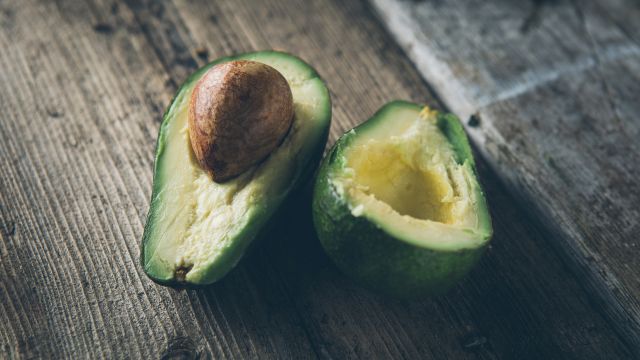Exocrine pancreatic insufficiency (EPI) is a condition that occurs when the pancreas is unable to produce enzymes the body needs to digest proteins, carbohydrates, and fats—the three main macronutrients the body depends on for energy, repair, and countless, continuous processes occurring at the cellular level.
The mainstay of treatment for EPI is something called pancreatic enzyme replacement therapy, or PERT. This involves taking medications with meals (and substantial snacks) that add in the missing enzymes.
Making changes to the foods you consume—and how you consume them—is also an important part of managing EPI.
Dietary fat
Some people who are living with EPI are advised to reduce the amount of fat in their diet. Others are advised to incorporate more fats into their diet, to ensure they are meeting their nutritional needs and maintaining a healthy weight.
Fats are an essential part of good nutrition. The body requires fats for nutrient absorption and transport, new cell growth, and hormone production. However, not all dietary fat is the same.
Here, we look at the types of fats you want to be incorporating into your diet, and the types of fats you want to be avoiding or eliminating.
Work with a healthcare provider
Before we get started—we strongly suggest talking to your healthcare provider about the foods you eat regularly and what they recommend eating. We all have different nutritional needs, and those needs become more complex when living with a condition like EPI. A healthcare provider will be your best source of information about your individual nutritional needs.
Different types of dietary fat
There are four different categories of dietary fat—monounsaturated, polyunsaturated, saturated, and trans. These fats play different roles in various body processes, including the transport of cholesterol in the bloodstream, and the development or prevention of inflammation.
Mono- and polyunsaturated fats
These are generally liquid at room temperature. Monounsaturated fats are found in vegetable oils like canola, olive, and sunflower oils. Non-oil sources include avocados and nuts. Polyunsaturated fats include omega-3 and omega-6 fatty acids. Omega-3s are found in oily fish such as salmon and anchovies, as well as some plant foods, including flaxseeds and walnuts. Omega-6 fatty acids are found in vegetable oils like soybean, corn, and safflower oils.
Saturated and trans fats
These are usually solid at room temperature. They include animal fats (such as lard and butter, and the visible fat seen on cuts of meat and poultry), coconut and palm oils, cocoa butter, and the fats found in whole-milk dairy products. Trans fats are formed when liquid fats are processed and hardened into solids and are considered the unhealthiest of the unhealthy fats.
Why bad fats are bad
Generally, saturated and trans fats are considered unhealthy because they tend to raise blood cholesterol levels, which can contribute to atherosclerosis, or plaque formation in the arteries (vessels that carry blood to the heart and throughout the body). Plaque buildup in the arteries increases your risk of heart disease, heart attacks, and strokes.
Why good fats are good
Replacing saturated fats in the diet with unsaturated fats can help reduce total cholesterol and LDL cholesterol levels in the blood. LDL refers to low-density lipoprotein (the “bad” cholesterol).
At the same time, unsaturated fats raise beneficial HDL (high-density lipoprotein) cholesterol levels. Some unsaturated fats, particularly omega-3 fatty acids, have been associated with a lower risk of cardiovascular disease, strokes, and certain cancers.
Omega-3s may also help reduce disease activity in inflammatory disorders.
Keep a food journal
In addition to working with a healthcare provider and discussing what you eat with your healthcare provider, understand that EPI is a different experience for everyone. Certain foods may be harder to digest, others easier. It may take some trial and error to find the foods that work best for you.
One way to help that process is to keep a food journal, writing down what you eat, at what times of day, and the quantities. Also keep track of how you feel day-to-day, including any symptoms you experience.
Medically reviewed in January 2022.






